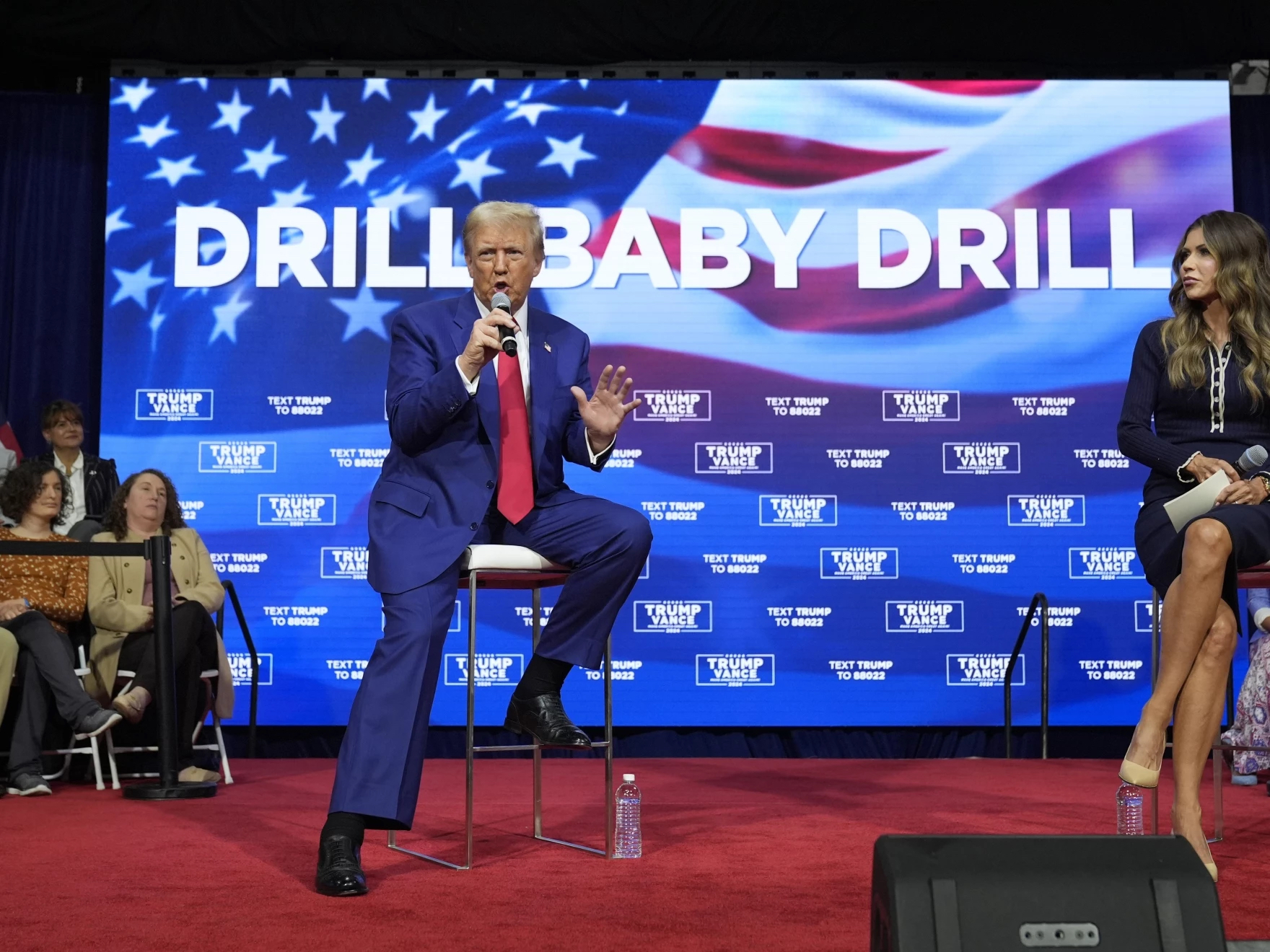Photo Credit: Alex Brandon / AP
Written By: Taylor Easterbrook
In President Trump’s first term, he rolled back over 125 environmental rules and policies at the federal level. Upon his reelection in 2024, controversy over his actions on the environment have again ensued. On Inauguration Day, he pulled the U.S. out of the Paris Climate Agreement. He defended this action by stating, “The United States will not sabotage our own industries while China pollutes with impunity.” Additionally, the president’s campaign coined the phrase “Drill, Baby, Drill,” arguing for his stance against renewable energy such as wind power while promoting further drilling for gas and oil. His statements depict a departure from the precedents set by President Biden who aimed to cut down on methane production by imposing fees on oil and gas companies for each metric ton of methane they released into the atmosphere. Some of Trump’s new policies have also been addressed in federal court which has garnered attention around the court’s ability to enforce its rulings against the executive branch.
The Brennan Center for Justice claims President Trump is “openly challenging judicial authority” with backing from Elon Musk and Vice President J. D. Vance. The Brennan Center cites the instance in which U.S. District Court Judge John McConell stated that the Trump Administration did not adhere to a court order regarding the unfreezing of federal spending. Judge McConnell instructed the Trump Administration to “immediately take every step necessary” to unfreeze certain funding and he also issued a restraining order to stop the freeze. As such, Judge McConnell was the first judge to rule that the Trump Administration disobeyed a court ruling.
Despite limited enforcement mechanisms, federal courts can impose civil or criminal contempt charges or apply stricter orders and sanction attorneys to enforce their rulings. However, President Trump has previously exercised his ability to pardon criminal contempt charges which raises questions about how this enforcement mechanism could actually be used by the courts. A sitting president has not been held in contempt of court in judicial history but officials who carry out the president’s policies have a much higher chance of facing these charges. There are potential options for the courts to enforce their rulings, although their effectiveness differs in various cases.
Within the context of climate policy, President Trump declared that the country is in a “national energy emergency.” The executive order for “Unleashing American Energy” signifies his desire for domestic oil, gas, and mineral production. With this, he was able to eliminate the electric vehicle mandate. Additionally, the president has pulled out of or overturned multiple environmental agreements that go against his idea of American-derived energy. The White House has stated, “The United States has the potential to use its unrealized energy resources domestically, and to sell to international allies and partners a reliable, diversified, and affordable supply of energy.”
In response to some of these actions, U.S. District Court Judge Tonya Chutkan prevented President Trump from discontinuing a $20 billion grant program facilitated by the Environmental Protection Agency (EPA). Thus, the president and the courts have already come into conflict regarding domestic versus international energy production and climate policy. Given this disagreement, it is relevant that the president has pardoned criminal contempt charges in the past because it shows his willingness to go against court enforcement mechanisms to implement his environmental goals. The American Bar Association recently stated that “it is unacceptable to personally target judges just because we disagree with their ruling.” Therefore, the ABA would likely condemn any action of the executive branch to reduce the constitutional authority of the judicial branch.
According to Green Central Banking, some states have begun to implement new environmental policies to replace the recently removed federal regulations on the environment. Meanwhile, the president has made intentional appointments to the EPA. The newly appointed 14th regional administrator of the EPA’s Region 6, Scott Mason IV, has demonstrated adherence to Trump’s emphasis on domestic oil and gas. Ultimately, the president has made clear environmental policy alterations early in his second term but there will likely be continued controversy between the executive branch and the courts regarding these policy changes.
